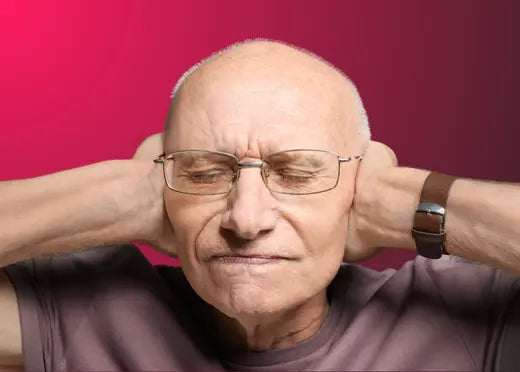Discover effective natural methods for treating tinnitus, from traditional remedies to new hearing-assisted technologies as a therapeutic adjunct.
Understanding the nature of tinnitus
Neurological mechanisms of tinnitus
Tinnitus is often caused by a disruption in the central auditory system. It results from misinterpretation of nerve signals, even in the absence of external sound.
Aggravating factors to identify
Stress, fatigue, stimulant use (caffeine, nicotine), and noise exposure can aggravate tinnitus. Identifying these symptoms allows for better overall management.
The importance of a holistic approach
An effective strategy combines natural solutions, a healthier lifestyle and adapted technologies to sustainably reduce hearing discomfort.
Natural remedies with scientific evidence
Supplements and nutrients studied (ginkgo biloba, zinc, etc.)
Ginkgo biloba, magnesium and zinc are among the supplements analyzed for their protective effect on the inner ear and blood microcirculation.
Beneficial Dietary Changes
A diet low in salt, rich in antioxidants and omega-3 helps reduce inflammation and improve hearing comfort.
Validated traditional medicinal plants
Plants such as valerian, chamomile or ginseng are used for their calming effects and their impact on reducing the perception of background noise.
Acupuncture and Traditional Chinese Medicine
Approaches from Chinese medicine have shown some effectiveness in regulating vital energy and relieving tension associated with chronic tinnitus.
Relaxation techniques and sound therapies
Meditation and mindfulness adapted to tinnitus
Mindfulness allows us to detach ourselves from parasitic auditory sensations by refocusing our attention on the present moment.
Yoga and specific breathing exercises
These practices promote better stress management, often linked to the perceived intensity of tinnitus.
Sound therapy: white, pink and brown noises
These neutral sounds help mask tinnitus by making the brain less receptive to unwanted signals.
Music therapy and specific frequencies
Some hearing programs use targeted musical sounds to soothe the nervous system and reduce hearing discomfort.
Behavioral and cognitive approaches
Habituation and retraining therapy
Inspired by TRT, this method aims to help the brain consider tinnitus as harmless background noise.
Attention diversion techniques
The goal is to focus attention on positive external activities to reduce the focus on internal sounds.
Stress management and its impact on tinnitus
Mental relaxation exercises can help break the vicious circle between stress and increased perception of tinnitus.
Hearing aids and tinnitus masking
The Spokeo Approach: Anti-Tinnitus Features
Spokeo incorporates a smart microphone and bi-conductor technology that allows you to focus listening on the speaker's voice, while attenuating background noise.
Customizing sound masking
Hearing aids allow for one-off, targeted use, adapted to times when tinnitus is most bothersome.
User testimonials and feedback
Many Spokeo users report a significant improvement in their hearing comfort thanks to a reduction in the perception of tinnitus in everyday situations.
👉 Want to try a simple, non-invasive, and instantly effective tinnitus masking solution ? Check out Spokeo.













